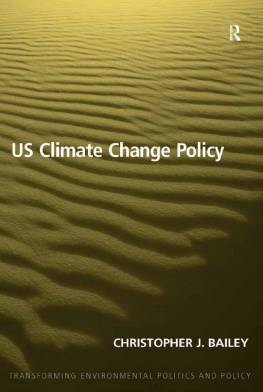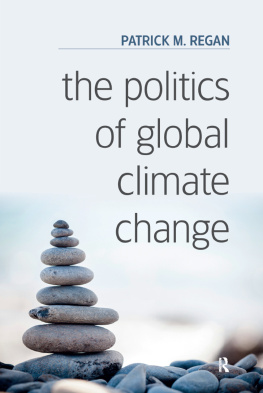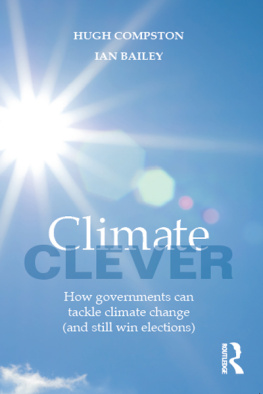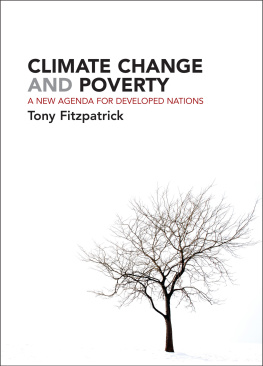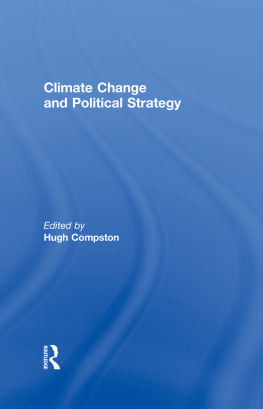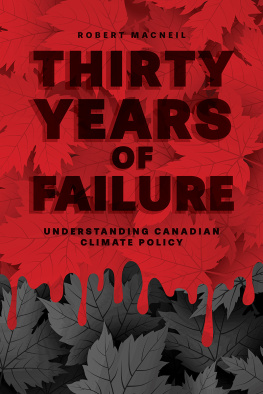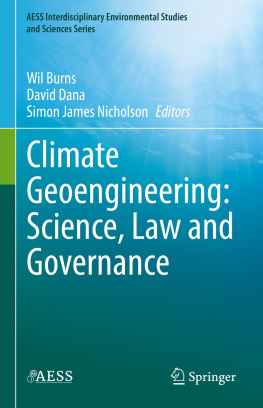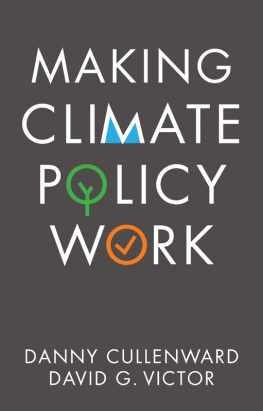
Carbon Captured
American and Comparative Environmental Policy
Sheldon Kamieniecki and Michael E. Kraft, series editors
For a complete list of books in the series, please see the back of the book.
Carbon Captured
How Business and Labor Control Climate Politics
Matto Mildenberger
The MIT Press
Cambridge, Massachusetts
London, England
2020 Massachusetts Institute of Technology
All rights reserved. No part of this book may be reproduced in any form by any electronic or mechanical means (including photocopying, recording, or information storage and retrieval) without permission in writing from the publisher.
This book was set in ITC Stone Serif Std and ITC Stone Sans Std by Toppan Best-set Premedia Limited.
Library of Congress Cataloging-in-Publication Data
Names: Mildenberger, Matto, author.
Title: Carbon captured : how business and labor control climate politics / Matto Mildenberger.
Description: Cambridge : MIT Press, 2020. | Includes bibliographical references and index.
Identifiers: LCCN 2019020113 | ISBN 9780262538251 (paperback)
Subjects: LCSH: Climatic changes--Political aspects. | Climatic changes--Political aspects--Australia. | Climatic changes--Political aspects--Norway. | Climatic changes--Political aspects--United States. | Climatic changes--Government policy. | Climatic changes--Government policy--Australia. | Climatic changes--Government policy--Norway. | Climatic changes--Government policy--United States.
Classification: LCC QC903 .M55 2020 | DDC 363.738/7456--dc23
LC record available at https://lccn.loc.gov/2019020113
10 9 8 7 6 5 4 3 2 1
Contents
Series Foreword
Climate change presents extraordinary challenges for our political systems. Forecasting the impacts of climate change is difficult. Policy action is rife with economic and political uncertainty. In many respects, climate change is the poster child for what some call the third generation of environmental policy problems. Its impacts are mostly, although not exclusively, long term and dispersed, and they are inevitably characterized by a high degree of uncertainty. Yet the costs of policy action tend to be short term and concrete enough for adversely affected interests, most notably the fossil fuel industry, to mobilize against mitigation efforts. In the case of the United States, efforts to control greenhouse gas (GHG) emissions are made even more difficult by an increasingly polarized national political system, even as considerable progress can be found at the state and local levels.
Climate change obviously requires meaningful global commitments and international cooperation. But domestic policy choices are just as politically difficult, if not more so. This is especially the case when newly emergent nationalist political forces in the United States and other nations inhibit governments ability to find common ground and build the trust necessary for effective global solutions. That developed and developing nations face somewhat different kinds of costs and risks over time and have different capacities for action further compounds the problems difficulty.
One would think that scientific consensus over the magnitude and likely impacts of climate change would improve prospects for policymaking. Yet, in the United States and many other nations, policy debates have not yielded the strong commitments that the 2015 Paris Agreement suggested were essential. Indeed, it is remarkable that, as of 2019, one of the two major political parties in the United States continues to question the existence of anthropogenic climate change. This party also seeks to curtail scientific research and public education necessary for the adoption of acceptable and effective climate solutions.
Given these conditions, Matto Mildenbergers book comes at an opportune time. He begins with the observationand puzzlethat national policy responses to climate change have varied significantly, with some nations taking concrete and serious steps to reduce GHG emissions while other have not. He turns to comparative political analysis to address this puzzle, arguing that existing theories in the field are insufficient to explain this variation in climate policy timing and content. His empirical data come primarily from a detailed examination of climate policy in Australia, Norway, and the United States between the late 1980s and the adoption of the Paris Agreement in 2015. His contribution focuses on describing how entrenched opponents to climate reforms have captured the climate policymaking process. As he notes, the sober reality is that use of carbon-based fuels dominates the energy, transportation, and manufacturing sectors of national economies, making substantial change enormously difficult.
Mildenberger suggests that climate policy variation across countries can best be understood by observing how major economic and political actors align themselves during climate policy debates, and how that alignment interacts with domestic political institutions. He finds that the interests of workers and businesses in carbon-dependent economic sectors do not fall along usual ideological and partisan lines. Rather, he argues, climate change divides nations in new ways that reinforce policy inaction.
The opponents of climate action, Mildenberger maintains, benefit more than supporters from what he calls double representation, which grants carbon polluters exceptional access to the policymaking process. He explains how domestic institutions can either augment or moderate this double representation of carbon polluters by structuring polluter access to climate policy design. Such access is molded by policymaking institutions, such as institutional interconnections between economic stakeholders and government decision makers. It is also molded by political organizations, for example through historical links between labor unions and political parties. The outcome is that no matter which party controls government, carbon polluters tend to have their interests met. Approved policies tend to shield these polluters from costs and emphasize modest incentives, subsidies, and voluntary action over tough regulation, technology mandates, and the imposition of carbon taxes. The author contends that the double representation of carbon polluters is the single most important feature of climate policy conflict across advanced economies.
Readers will find that Mildenbergers richly detailed history and analysis of Australia, Norway, and the United States climate policy actions, and shorter treatments of other countries actions, offer new and significant insights into how developed nations have chosen to address the risks of climate change. The focus on double representation offers a new perspective on how and why political systems have failed to take the policy actions that nearly all observers believe necessary, and helps point toward future solutions to this political failure.
The book illustrates well our purpose in the MIT Press series in American and Comparative Environmental Policy. We encourage work that examines a broad range of environmental policy issues. We are particularly interested in volumes that incorporate interdisciplinary research and focus on the linkages between public policy and environmental problems and issues both within the United States and in cross-national settings. We welcome contributions that analyze the policy dimensions of relationships between humans and the environment from either a theoretical or empirical perspective.
At a time when environmental policies are increasingly seen as controversial and new and alternative approaches are being implemented widely, we especially encourage studies that assess policy successes and failures, evaluate new institutional arrangements and policy tools, and clarify new directions for environmental politics and policy. The books in this series are written for a wide audience that includes academics, policymakers, environmental scientists and professionals, business and labor leaders, environmental activists, and students concerned with environmental issues. We hope they contribute to public understanding of environmental problems, issues, and policies of concern today and also suggest promising actions for the future.
Next page

